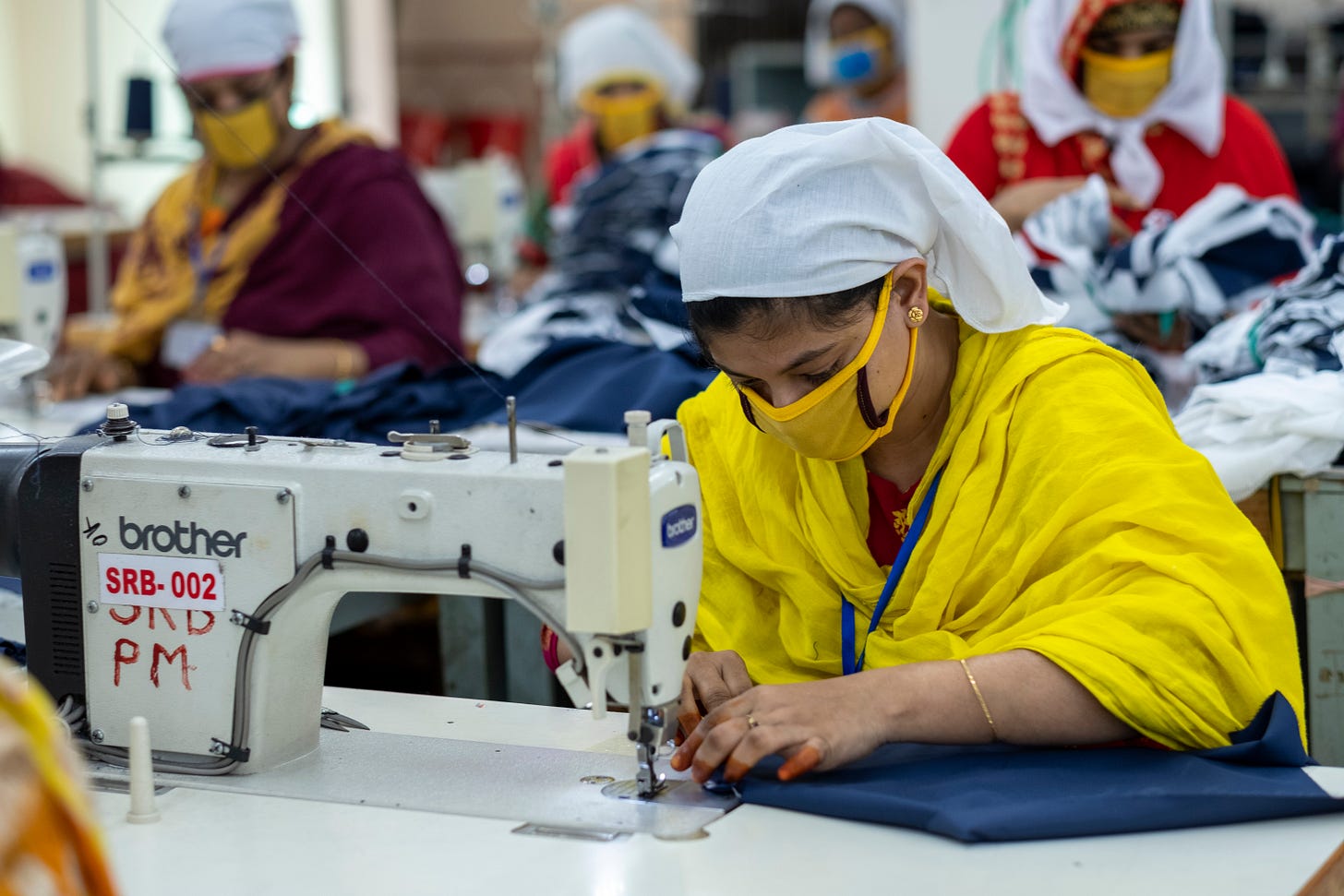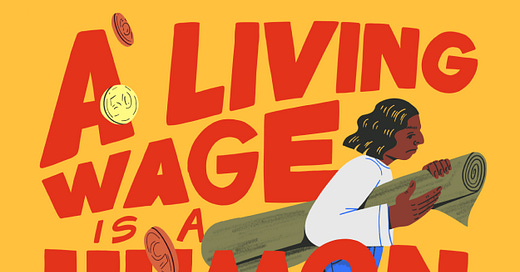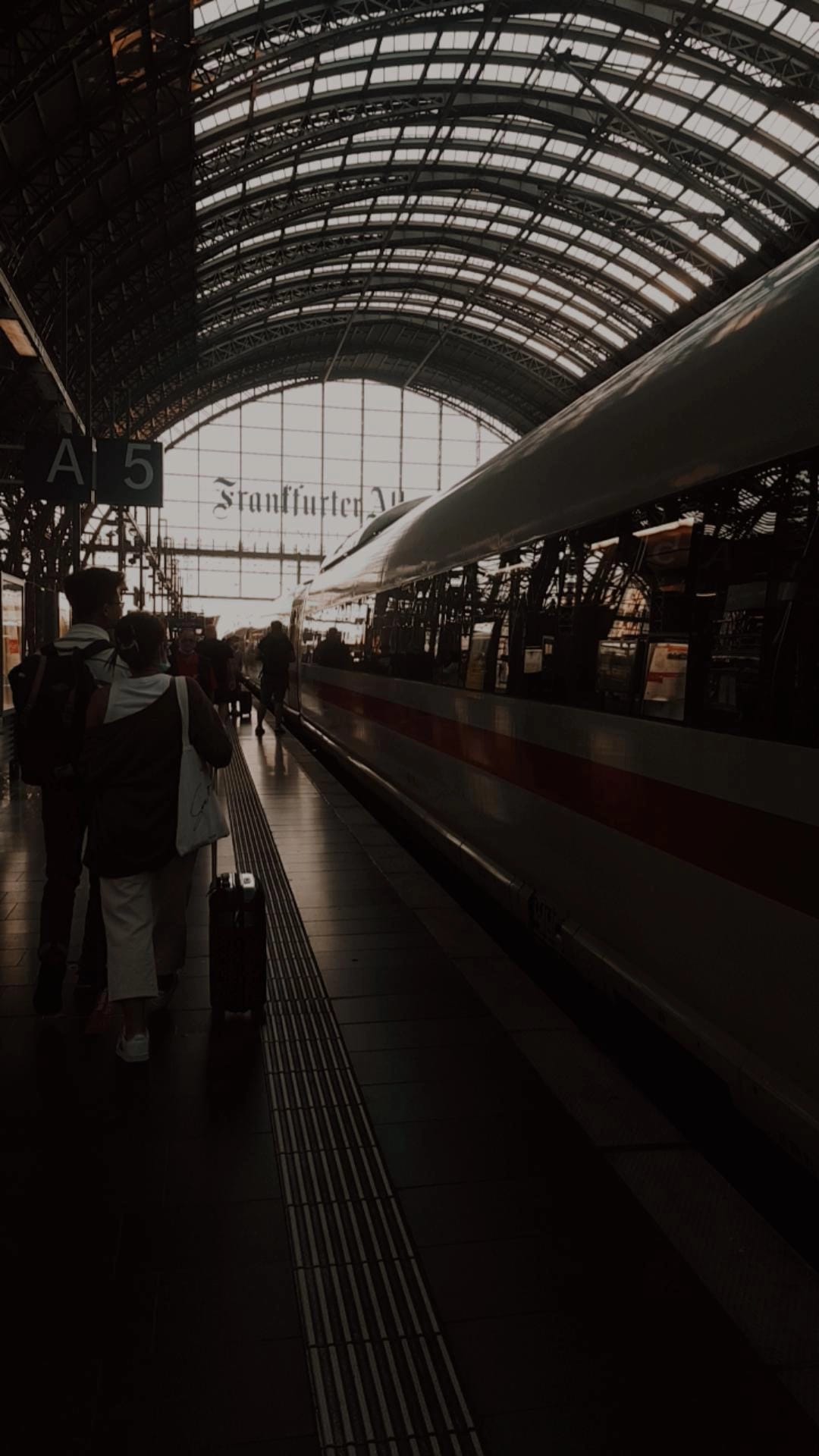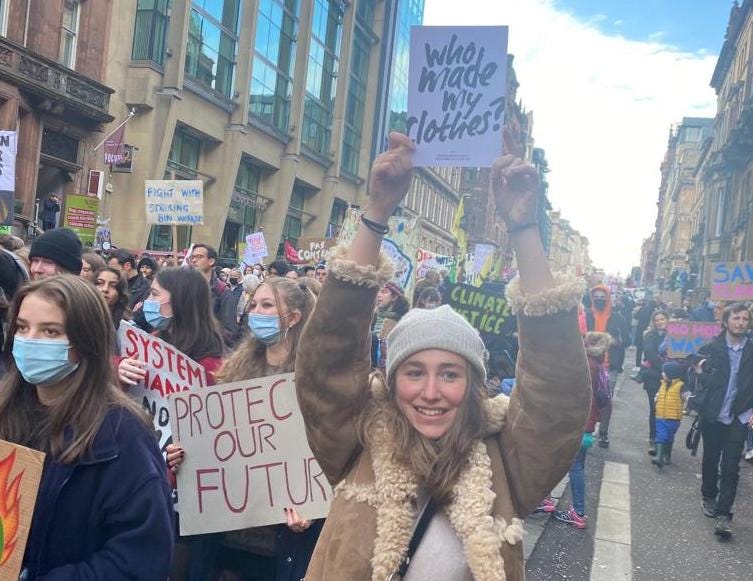Ever have those moments where - in the middle of something exciting, like a night out at 3am, a holiday abroad, moving into a new place - you suddenly wish you were at home? And you curse yourself for not being more adventurous, more laidback, more grateful.
For me, it hit me like a sledgehammer in Frankfurt train station at 21:00 on Saturday after 12 hours of travel. An impassive Deutsche Bahn assistant told me that I had missed my train for Nuremburg, where my hostel awaited.
For a second, the chaotic train journey across Germany stopped being a funny story in the works, and I was just tired and stuck in a foreign city at night. Home felt far away.
I didn’t really want to go home, of course. Would I be happier sitting in my room? Just as stuck, but this time in my self-defined comfort zone.
This desire to retreat, it’s homesickness for a feeling. You know. Of someone telling you that they’ll handle the situation, not you. It’s wanting to fast-forward to the point where you’re telling your friends about that crazy stressed-out day. It’s breathing out.
I know this feeling well. I felt it when I first moved to Belgium. As the train pulled into a station with signs in languages I didn’t speak, all my jokes dried up. I felt it when I had to stand on a stage and talk to an audience of strangers for the first time. Faced with a sea of faces, I was alone. I felt it in that fragile moment before a long-awaited Difficult Conversation.
In other words, I felt it every time I’m about to change and step further out of my comfort zone. After the urge to retreat, comes the adrenaline rush of I can handle it after all.





As Europe simmers and the news presents something scary every day, the urge to retreat can hit hard. But there are no doors on this train carriage. We’re heading to a foreign future whether we like it or not. We don’t need to run. We must face it.
Back to Frankfurt. I resisted the urge to sit down and give up. I found a way to the hostel. It was not the first or last difficult day I will get through.
That idealised, not-quite-reachable sense of home, I have built it in my mind. My moral compass is leading me to strange and scary places but I have learnt to let go of my assumptions of what I can and can’t do and what is and isn’t possible. I have never been here - in this train station, in this day and age, in this situation. But still, I am home.
What’s Going On?
It’s very hot in Europe.
Relevant: How cities around the world are coping with heatwaves.Brazil declares the Paris Agreement a human rights treaty.
Relevant: How climate rights are advancing around the world (despite that EPA ruling).36 countries now have more trees than they did in the year 2000.
Useful: What is afforestation?The European Union somehow decided that natural gas is green.
Useful: Did your MEP vote in favour?
Greenhouse gas emissions from mining cause up to $3 trillion in environmental damage every year, report finds.
Relevant: Meet the Peruvian farmer standing up to unethical mining corporations.Gen-Z are embracing the mindset of ‘climate optimism.’
Relevant: Why joy is the untapped resource of the climate movement.
Taking one minute to share The Green Fix is a great way to support us:
Focus On… Workers’ Rights
Lisa Bergmann talks to Delphine Williot from Fashion Revolution about what labour rights have to do with the climate crisis.
I’m Delphine Williot. I’m the Policy and Research Coordinator for Fashion Revolution, the world’s largest fashion activism movement.
We were created in the wake of the Rana Plaza disaster and we’ve been campaigning for a fashion industry that values people and the planet over profit.
Can you tell me about the new campaign you’re working on?
At Fashion Revolution we believe that there is no sustainable fashion without fair pay. Most of the people who make our clothes are not earning a living wage, much less a living minimum wage, which means they are trapped in poverty.
They cannot provide for themselves or their families despite working gruelling hours. They struggle to put healthy food on the table, live in adequate housing, access healthcare, or even send their children to school.

This is why we decided to launch our campaign, Good Clothes Fair Pay. It’s a European Citizen’s Initiative (ECI) campaign for legislation at the EU level to guarantee that any company that sells their product on the EU market will conduct due diligence on the living wages across their supply chain.
In order to be successful, an ECI needs one million signatures from EU citizens in 12 months.
Due diligence means we are asking brands to map their supply chains to understand where their products and fabric are made, and then assess whether the garment workers in those factories or suppliers’ factories are paid a living wage. So they might have some zips made in Bangladesh, some linen coming from Belgium, dye their products in Morocco, and so on. They need to assess whether the garment workers working on all these different products are earning a living wage.
If they are not, which most likely they are not, brands will then need assess how they are going to close the gap between the wages that garment workers are currently earning and a credible living wage benchmark. They will need to put an action plan in place and report on this publicly so that they can be held to account. If they do not, they will be sanctioned by the European Union.
What do workers’ rights have to do with the climate crisis?
Social justice is interconnected with climate justice.
Suppliers are pressured to produce more with less time and less money, ultimately leading to overproduction and the inability to pay garment workers a living wage. When a supplier is pressured by a brand to produce so many clothes in such a short amount of time, it leads to the waste crisis happening today in many countries, especially in the global south. The waste crisis within the fashion industry has huge environmental impacts, whether that be through pollution, waterways, or the impact on the livelihoods of the local communities.
And as clothes are made, the textiles are processed with really hazardous chemicals. These chemicals will be found in most piles of clothes that accumulate and ultimately impact the local communities’ health, the waterways’ health, and local biodiversity as well.
By paying garment workers a living wage not only will we reduce the amount of clothes that are being produced, we will also ensure that the health and safety of the garment workers are safeguarded.
I want workers to be paid fairly but I’m worried I can’t afford clothes that are ethically made. How do we make sure fair fashion is affordable?
At Fashion Revolution, we believe that loved clothes last, which means that ultimately you shouldn’t have to pay for clothes that have a hefty price tag to be ethical. It’s about maintaining the clothes that you already have.
We should see ourselves as not just consumers but as citizens who are able to call upon legislation that we need within the fashion industry, ensuring that garment workers are paid fairly.
Lastly, when we did our research around the living wage campaign we found that the cost associated with paying garment workers a living wage is not significant. It would only increase the price of an item by 1%.
It’s such a minimal part of the cost of an item that it should be the brand’s responsibility to ensure that their garment workers are paid fairly. As consumers, we should put our voices together and ask brands to include this cost in their business model instead of passing the cost onto consumers.
Legislation seems to take forever to pass. What can I do to support ethically-made fashion in the meantime?
There are many different ways and I think being able to define ‘ethically made’ is very difficult, especially in light of all the greenwashing we’re seeing today and all the claims that brands are making.
[Read: How to tell if a brand’s green claims are legitimate].
It’s not so much about just supporting new brands. It’s about minimising our consumption as consumers, ensuring that what we already have is going to last as long as possible.
And when we do support brands that are in line with our values, there are different ways. At Fashion Revolution we have a program called Fashion Open Studio, which is supporting young designers to promote sustainable fashion with business models that do not harm people or the planet.
It’s also about using our voices as citizens. We can call on the legislation we want to see. It shouldn’t be the responsibility of the consumer to ensure whether a product is sustainable or not. It should be the legislation that ensures that brands cannot operate without being sustainable. They should not be able to operate without paying a living wage to their garment workers.
Support initiatives like Good Clothes Fair Pay. Support initiatives that are calling for changes in legislation and ask the brands who are making their clothes how much they are paying them, ensuring that these brands are held up to account.
If you’re not an EU citizen, is there a way to support your campaign?
Anyone who has an EU citizenship, even if they do not currently live in the EU can still sign on to the ECI.
If you are not an EU citizen, you can share our campaign with your network, share with your friends, and family. We hope that promoting this legislation and campaign globally will also influence other governments to think about their own local legislation and potentially put some new legislation in place.
You can follow the #GoodClothesFairPay campaign via the mailing list on their website and on Instagram.
This newsletter is run by volunteers. If you find The Green Fix useful, you can tip us a virtual coffee.
So Now What Do I Do?
LEARN MORE
Join The Green Fix this Saturday 23 July in Brussels at an open radio show by Are We Europe to discuss land rights and sustainability.
Learn how human rights defenders and activists can better protect their mental health in this webinar tomorrow 21 July at 15h CEST.
TRY SOMETHING NEW
Under 35? Applications to join the WYSE Global Changemakers Programme are open until the 22 July.
Sign up for this super-cool Creative Leadership summit on learning how to become a resilient leader in times of uncertainty. Online 23-29 July.
UK folk! Why not hop on a bus up to Aberdeen for the Climate Camp 28 July - 1 August?
CHANGE THE SYSTEM
Tell the European Youth Forum what changes you want to see ahead of EU Regions Week in this short survey.
Have your say on how regional authorities can better protect mountain ranges in Europe in this form before the 28 July.
Tell this youth NGO coalition what sustainable projects you want to see in your region for the chance to win funding and mentorship.
By the way…
If you have a topic you want the Green Fix to cover, fill out this feedback form & tell us your idea!
Stay in the loop
You can connect with me on Instagram, Twitter and LinkedIn. You can also follow the Green Fix Twitter and LinkedIn page here for more climate opportunities.
Know someone interested in environmental issues? Forward this email to them - we want to reach people who care about doing more for the planet, with your help.









